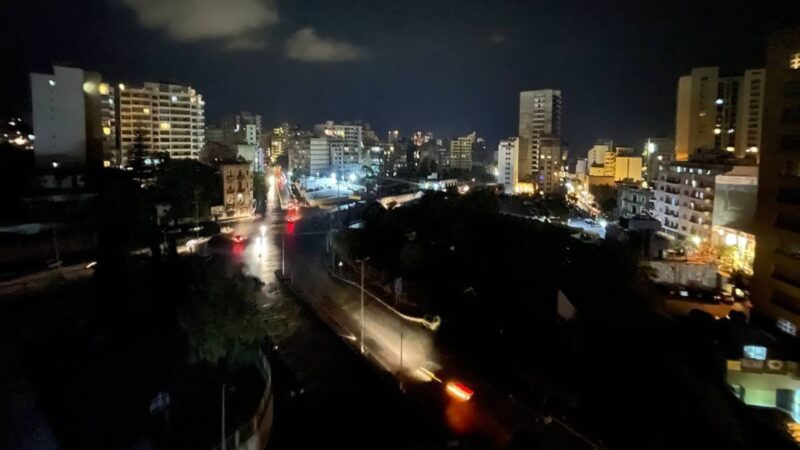Lebanon seeks urgent solution to electricity crisis to avoid blackout
Lebanon on Saturday witnessed a massive power outage

Authorities in Lebanon are racing against the clock to resolve an electricity crisis that threatens to plunge the country into total darkness, officials said on Friday.
Utility provider Electricity of Lebanon said it was “fighting tooth and nail” to find a solution before the lights go out at Beirut’s airport, port and presidential palace.
The problem arose after Al-Zahrani power plant ran out of gas oil and ceased operations.
Roumieh Central Prison is also on the brink of darkness. The families of its inmates blocked a road in Baalbek on Friday in protest against the situation. They said their relatives had been deprived of food since catering companies stopped supplying prisons.
A source from EDL said the company was now set to use grade B gas oil instead of grade A, after the idea was approved by its board of directors, caretaker Prime Minister Najib Mikati and Energy Minister Walid Fayad.
The plan also requires the use of the remaining diesel from the Tyre thermal power plant, so EDL can restart the Zouk thermal power plant on Saturday.
The authorities also agreed to reduce the production at Al-Zahrani plant from about 200 megawatts to 40 MW to provide electricity to the airport, port, Roumieh prison, water pumps, sewers, Lebanese University, parliament, government headquarters and the presidential palace.
EDL said it was awaiting delivery of a gas oil shipment from Iraq but that could take between 20 and 30 days to arrive.
Electricity production at EDL’s plants has been dependent on the Lebanese-Iraqi agreement, as the dates for when electricity from Jordan will arrive and the extraction of natural gas from Egypt will begin are still unknown.
Funding for both projects has yet to be secured by the relevant authorities.
After meeting President Michel Aoun on Friday to discuss the crisis, Fayad said resolving the problem would require the use of the gas oil from Al-Jiyeh and Zouk power plants.
The meeting discussed the possibility of renewing the Iraqi deal, allowing Lebanon to receive 1 million additional tons of fuel after the first quantity ran out, he said.
Such a quantity would secure about three hours of electricity, he added.
Fayad said authorities were previously relying on the World Bank, the Egyptian gas and electricity from Jordan. But he added that the World Bank imposed new conditions, including increasing the tariff, developing a plan to cover the cost and carrying out procedures for the establishment of the regulatory body.
EDL’s board of directors issued a decision to increase the tariff in parallel with the increase of electricity hours.
The matter required the approval of the finance minister and the government, Fayad said, adding that the go-ahead could be given in exceptional circumstances by the president and caretaker prime minister.
Fayad said Iraq would provide about 40,000 tons but Lebanon would still need about 110,000 tons so a separate deal would have to be reached with another country.
Algeria had expressed its readiness to help in that regard, he added.
Concerns have also been raised about a possible interruption of the telecommunications sector despite it having its own generators. Caretaker Telecommunications Minister Johnny Corm confirmed on Friday that the sector did not rely on EDL to operate.
How to submit an Op-Ed: Libyan Express accepts opinion articles on a wide range of topics. Submissions may be sent to oped@libyanexpress.com. Please include ‘Op-Ed’ in the subject line.
- Can Cairo talks break Libya’s political deadlock? - December 28, 2024
- Al-Maqarha figures visited Abdullah Al-Senussi - December 28, 2024
- Senegal unveils ambitious reform plan - December 28, 2024


